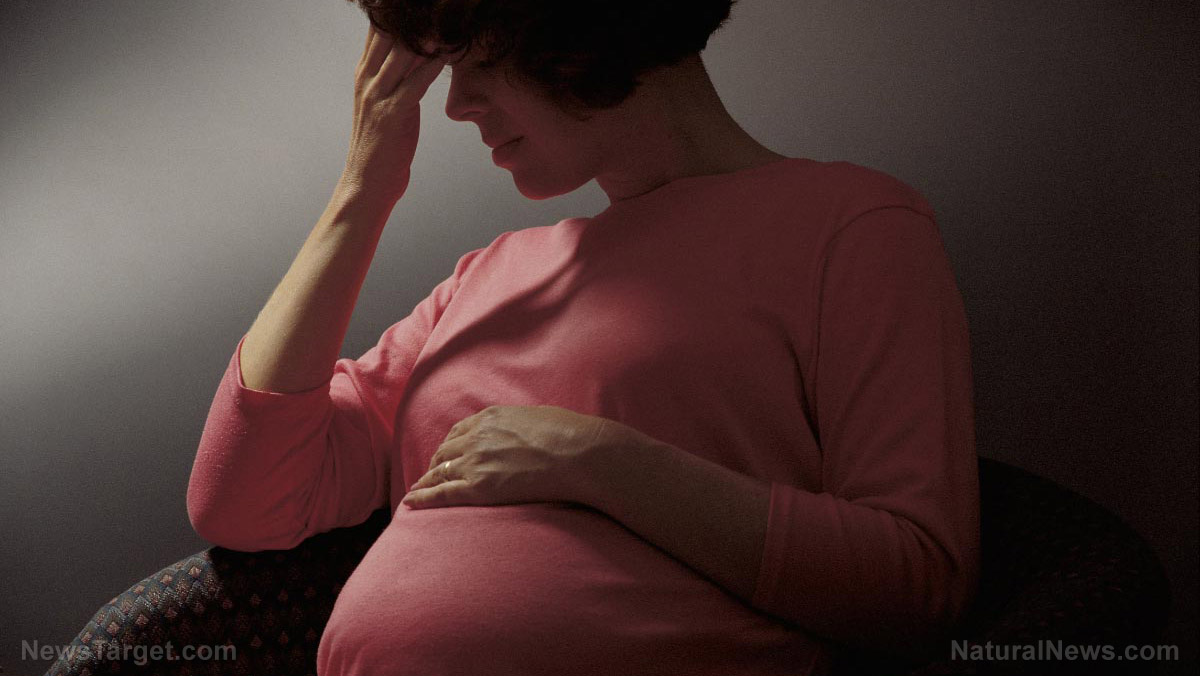Pregnant women who DON’T get vaccinated have healthier babies than those who do – so why do we still give them flu shots?
08/27/2020 / By Cassie B.

Fewer than four in ten pregnant women in America follow the public health recommendation to get a flu vaccine. Although this percentage is a lot lower than public health officials might like to see, it is still remarkably high when you consider the dangers.
Worries by mothers-to-be about potential harm to their fetuses are the main reason many choose to avoid the jab, and their concerns are justified. Unfortunately, a lot of pregnant women aren’t hearing about studies like one from a team of South African researchers that compared four outcomes for infants whose mothers were given flu shots during pregnancy versus those who were given a placebo. They found that the shot was ineffective at lowering the risk of the outcomes studied, which were low birth weight, preterm birth, small for gestational age birth and fetal death.
Perhaps even more concerningly, they found that the infants whose mothers were vaccinated actually fared worse on these metrics.
The study was a large randomized, placebo-controlled, double-blind study involving more than 2,000 mothers who were given the flu shot or a placebo during the second or third trimester of pregnancy. The researchers then followed up on fetal outcomes once the infants involved reached 24 weeks of age.
Another interesting finding was that the average gestational age at birth in the vaccinated group was lower than that of the placebo group, which is a statistically significant result pointing to a greater risk of preterm birth from the shot.
It is also worth noting that studies have shown there is a higher risk of autism among children whose mothers got the flu shot during their first trimester of pregnancy.
Not surprisingly, researchers are trying to find ways that they can design “communication interventions” that are more persuasive and improve uptake. In other words, they still want to convince pregnant women they need these shots even as research shows it can damage their children’s health.
A study from 2013 that looked at adverse pregnancy outcomes among women who were given the flu vaccine determined that low-risk women without medical complications who were given the jab during the 2009-2011 flu seasons saw a rise in a composite measure of negative outcomes (fetal demise, neonatal demise, preterm birth, and miscarriage) when compared to pregnant women who were unvaccinated, even after the researchers made adjustments for confounding factors.
Flu shots during pregnancy can weaken immunity in subsequent years
A study carried out by researchers from the Ohio State University Wexner Medical Center found that pregnant women who were given a flu shot exhibited a weaker peak antibody response to it if they had gotten the flu shot the year before. The study was published in the Vaccine journal.
Pregnant women need to know that no vaccine has ever been approved by the FDA specifically to be used during pregnancy to protect the infant. The flu shot’s effects on pregnant women are not yet fully understood by doctors and researchers. For example, the insert for the flu jab Flulaval, which most patients never end up reading, specifies: “Safety and effectiveness of Flulaval have not been established in pregnant women, nursing mothers or children.” So why are so many women still having these shots pushed upon them?
Of course, no discussion of the flu vaccine would be complete without pointing out that the shot simply isn’t that effective in many cases. The vaccines are developed well ahead of the beginning of the flu season and predictions about prominent strains are often wrong, which means they afford little to no protection most years. This means expectant mothers are taking on a pretty sizable risk for potentially no rewards whatsoever.
Sources for this article include:
Tagged Under: deception, flu shot, Flu vaccine, healthy babies, pregnancy, Public Health, vaccine injury, vaccines, women's health
RECENT NEWS & ARTICLES
COPYRIGHT © 2017 HEALTH FREEDOM NEWS



















